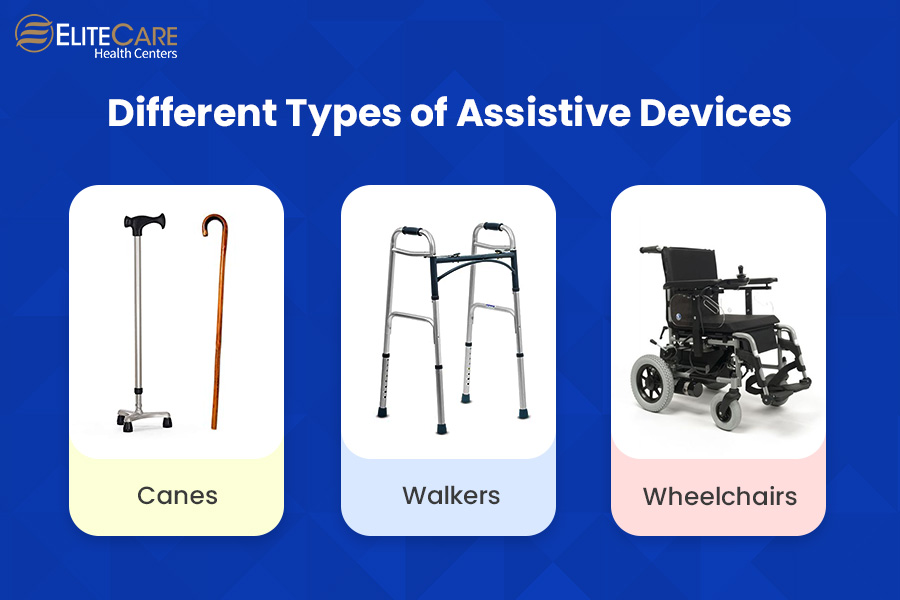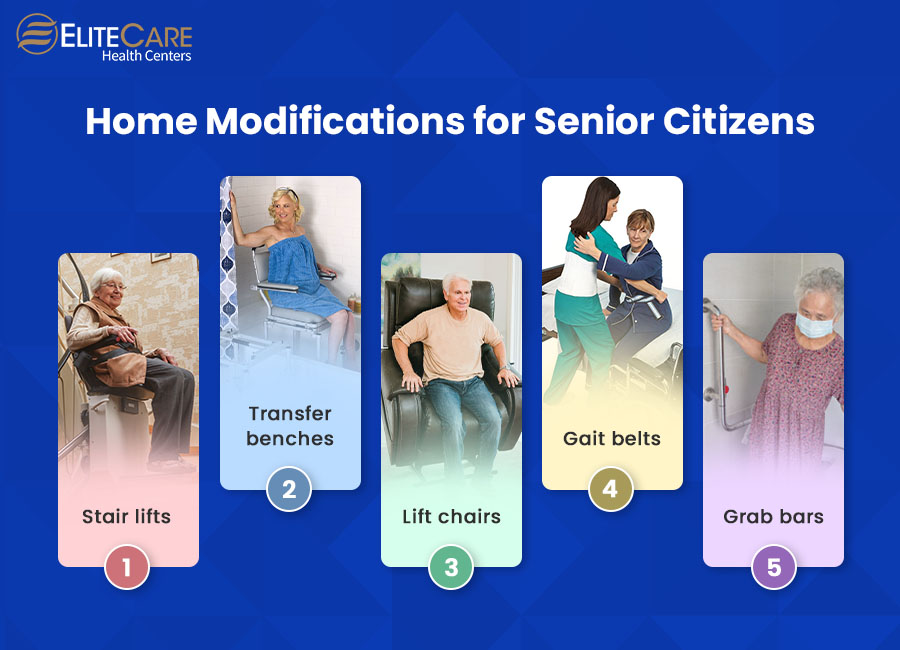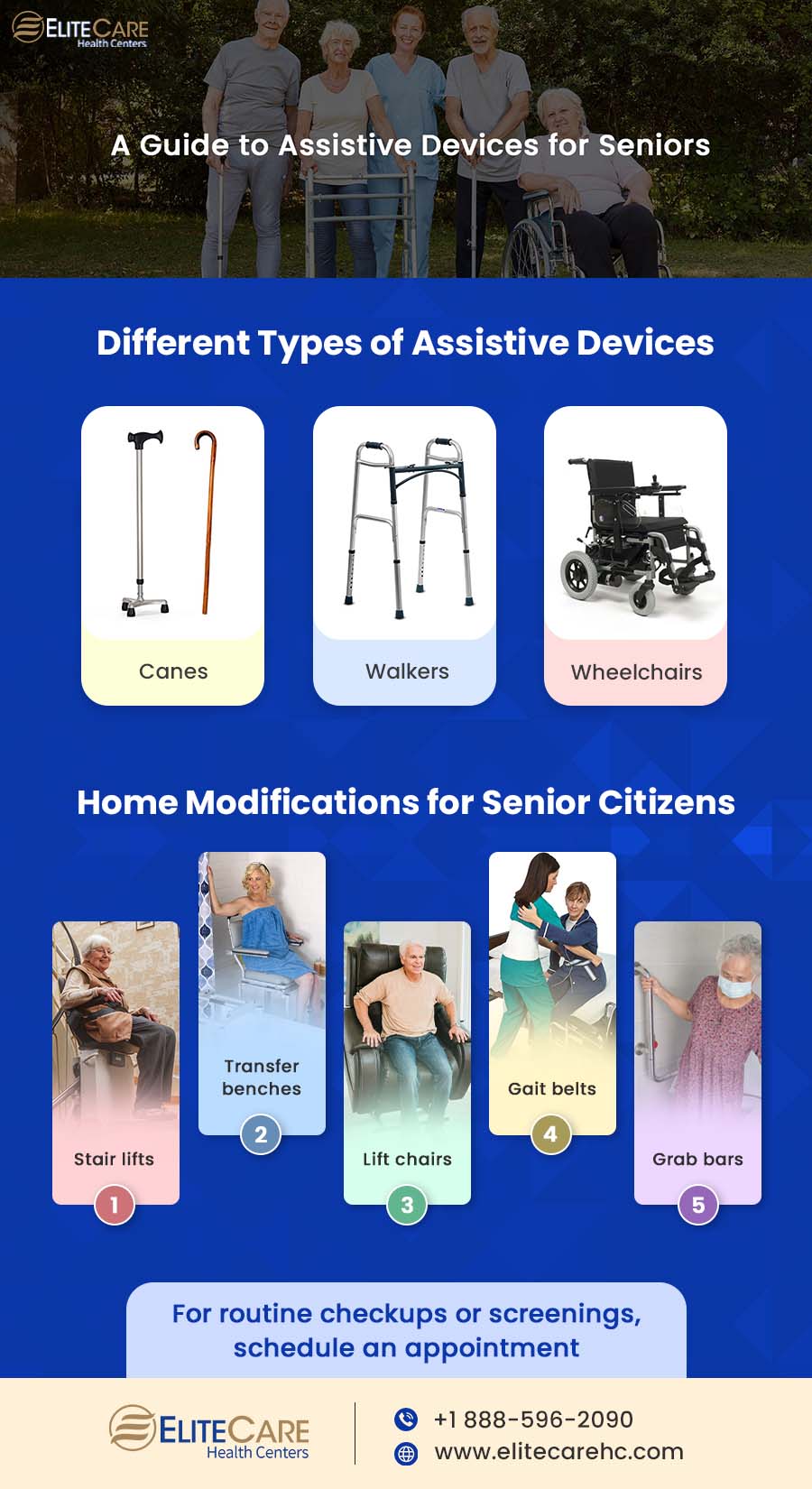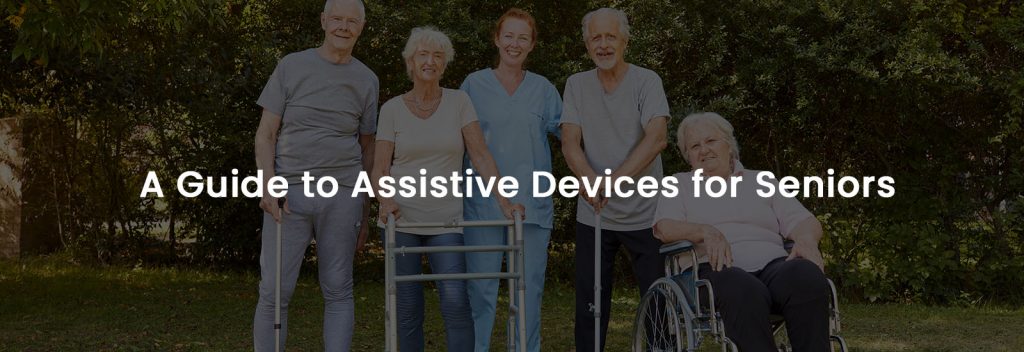
Aging can expose seniors to a range of mobility issues like decline in muscle strength, poor balance, reduced flexibility and limited range of motion. These issues can stem from age-related conditions like osteoporosis, arthritis and sarcopenia, as well as chronic degenerative conditions like Parkinson’s disease or multiple sclerosis. Seniors who have difficulty walking or moving around on their own are at higher risk of experiencing fall-related injuries.
Read More: Is Arthritis Preventable in Seniors?
In the United States, 25% of older adults who are 65 and above suffer from fall injuries each year. Fall injuries can lead to fractures, head injuries and other complications that can negatively impact seniors’ overall health and quality of life. Therefore, to maintain their independence and reduce their risk of injuries, seniors often need assistive devices to help them walk.
Assistive devices are designed to support walking and help seniors who suffer from mobility impairment. There are various types of assistive devices and their use depends on the specific requirements of the elderly. They can be especially beneficial for seniors suffering from:
- Arthritis
- Fractures
- Obesity
- Diabetic ulcers
- Visual impairment
- Gout
Older adults who have difficulty walking due to brain injury or stroke also benefit from using mobility aids. But what are the different kinds of assistive devices available to senior citizens? Keep reading to learn more.
Types of Assistive Devices

The most common type of assistive devices for older adults include:
Canes
A cane is a mobility aid that provides support and stability while walking. It consists of a handle, shaft, and tip, and is made of different materials such as wood, metal, or plastic. They are especially useful for seniors who are at risk of falling due to conditions such as dizziness or vertigo. They also provide support and stability for seniors who have a weak leg or knee or have recently undergone surgery.
Different kinds of canes can offer unique features to suit seniors’ needs. For example, quad canes have four feet and a wider base. They are better suited for seniors who need more support. On the other hand, offset canes have an angled handle, which allows for better weight distribution and reduces strain on the wrist. It’s suitable for individuals with arthritis or other conditions that affect the hands or wrists.
It’s important for seniors to select the type of cane that best meets their needs and to use it correctly to ensure safety and comfort. Consulting with a healthcare provider or physical therapist can help determine the appropriate type of cane and its proper use.
Walkers
A walker is a mobility aid that provides more support and stability than a cane. It typically consists of a metal frame with four legs and a handlebar for support. Walkers can help seniors move around more easily and safely, reducing their risk of falls and injuries.
There are several types of walkers available for senior citizens, some of them include:
- Standard walker: This type of walker has four legs with rubber tips for stability and does not have wheels.
- Wheeled walker: This walker has two front wheels and two back legs with rubber tips. It’s suitable for seniors who need more mobility than a standard walker but still require support.
- Rollator walker: This walker has four wheels, a seat, and a basket for carrying items. It’s suitable for seniors who need more mobility and support than a wheeled walker.
- Knee walker: This type of walker has four wheels and is designed to support the knee while the other leg is used for walking. It’s suitable for seniors recovering from foot or ankle surgery.
Wheelchairs
Wheelchairs are assistive devices that allow seniors who have limited mobility or are unable to walk to move around independently. It typically consists of a seat, backrest, footrests, and wheels. Wheelchairs may be necessary for seniors with medical conditions that affect their mobility, such as spinal cord injuries, multiple sclerosis, or Parkinson’s disease.
There are several types of wheelchairs, such as:
1. Manual wheelchairs: They are propelled by the user or by someone else pushing them.
2. Powered wheelchair: These are electrically powered and are operated by a joystick or other control device.
3. Transport wheelchair: They are lightweight and designed for easy transport, often used for travel or short-term use.
Home Modifications for Seniors
Apart from the ones mentioned above, there are a few other assistive aids that can be installed inside the house to help seniors and their caregivers to navigate mobility issues on a day-to-day basis. Here are a few:

1. Stairlifts
Devices that assist seniors with mobility issues to move up and down stairs.
2. Transfer benches
These help seniors safely transfer in and out of the bathtub or shower.
3. Lift chairs
A type of recliner chair that can lift the user to a standing position or lower them down to a seated position.
4. Gait belts
Assists caregivers in supporting seniors when they need to be transferred on to a bed or a wheelchair.
5. Grab bars
These are safety devices that provide support and stability in bathrooms and other areas of the home.
These modifications can help seniors with mobility issues remain in their homes and maintain their independence while reducing the risk of falls and injuries. Consulting with an occupational therapist or a Certified Aging-in-Place Specialist (CAPS) can help determine the appropriate home modifications for seniors with mobility issues.
Key Takeaway
- Age-related physical changes and certain neurological conditions can significantly affect seniors’ ability to walk and remain independent as they grow older. However, different kinds of assistive devices like canes, walkers and wheelchairs can help seniors function better despite their mobility impairment.
- Moreover, installing certain assistive devices like grab bars and lift chairs inside the home can help reduce seniors’ risk of suffering from fall-related injuries that occur indoors.
If your elderly loved one needs treatment for minor injuries that result from falls, visit the nearest EliteCare health centers for more help. EliteCare is one of Florida’s best medical clinics, with a team of highly trained primary care physicians who offer services like venipuncture, immunizations, EKG and more. Visit their website to schedule an appointment today.






